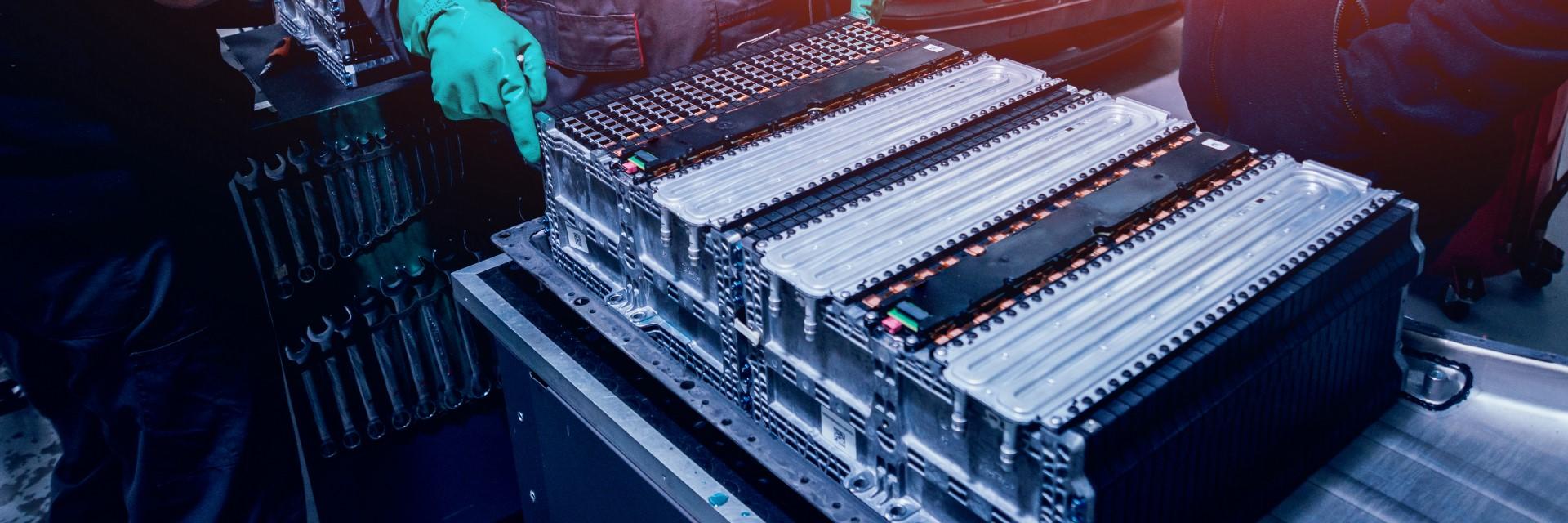Dubai, United Arab Emirates, 3 December 2023 (ECA) - A high level panel on Supercharging Africa’s Battery and Electric Vehicles Ambitions, has said the Democratic Republic of the Congo (DRC) and Zambia could play a lead role in Africa’s transition to clean and renewable energies as well as the development of efficient and sustainable transport systems.
The Economic Commission for Africa (ECA), Africa Finance Corporation (AFC), and the African Union Commission (AUC) convened the high- level panel discussion on 3 December 2023.
According to the 2023 Bloomberg Electric Vehicle Outlook, the estimated value of the battery and electric vehicle value chain by 2050 will be US $56.7 trillion, as a result of the strong growth in production of electric cars, the number of which will increase from 3 million cars per year today to 160 million in 2050.
ECA Executive Secretary Claver Gatete said a global transition towards green energy and rapid decarbonization has exponentially increased the demand for Electric Vehicles (EVs) as well as investment in battery-powered storage systems.
“Rich mineral endowments offer an opportunity for the African continent to be at the heart of the dynamic battery value chain as well as the revolution driven by the development of electric vehicles. ECA’s work in DRC and Zambia and across the continent, would enable our member States to tap into this opportunity,” he said.
In March 2023, the Framework Agreement relating to the creation of Special Economic Zones on the production of precursors of Batteries and Electric Vehicles was signed in Kinshasa, between the DRC and Zambia, as well as the partners represented by the ECA and Afreximbank.
Mr. Samaila Zubairu, President, Africa Finance Corporation for his part said that Africa has over 40% of minerals and metals required for the energy transition and renewable energy requirements that will allow us to achieve the net zero energy requirement. “The focus should be on how we can work together on both paths for sustainable mining of minerals.”
He underlined that even though Africa is rich in its minerals, studies show that battery precursors can yield over US $300 million or more in value. “Africa should therefore focus on this window and collectively agree to process raw material into finished goods.”
“We should invest in data acquisition that shows where the metals are so we can know the value of these metals. Frameworks and partnerships between government and private sectors on the risks of mining these minerals is also key to maintaining high standards and ensure that the community is involved,” he added.
Denys Denya, Executive Vice President – Finance, Administration and Banking Services at Afreximbank said the bank is providing funding for a feasibility study so that African entrepreneurs can fully participate in retaining the value on the continent and create jobs.
ECA data shows that with a market estimated at 1.3 billion consumers today and a projection of 2.5 billion consumers by 2050, the AfCFTA represents an opportunity to accelerate the process of economic diversification, industrialization and structural transformation of its economy, in addition to increasing its exports to a better integrated African market.
Africa’s mineral and other natural resources he said can be used to unlock new opportunities in manufacturing, especially to develop the battery, electric vehicle, and renewable energy industry value chain and market in Africa.
“As the initiative on Africa’s Battery and Electric Vehicles moves to the implementation stage, policymakers should remember the importance of local content policies and incentives necessary to onboard local enterprises into the global value chain for batteries and electric vehicles for local beneficiation,” said Mr. Gatete. He also informed the meeting of the UN Secretary-General’s announcement on 2 December at COP 28, on the establishment of a Panel on Critical Energy Transition Minerals, which will bring together governments, international organizations, industry and civil society to develop common and voluntary principles to guide extractive industries in the years ahead in the name of justice and sustainability.
Issued by:
Communications Section
Economic Commission for Africa
PO Box 3001
Addis Ababa
Ethiopia
Tel: +251 11 551 5826
E-mail: eca-info@un.org

